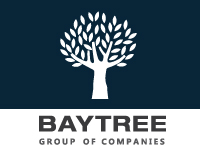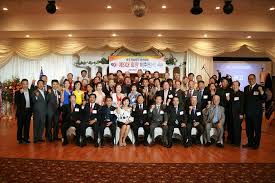CA
ON
놀부 - 한식/일식/중식
전화: 416-221-4700
3 Elmhurst Ave, North York, ON

럭키조경 & 나무자르기
전화: 647-564-8383
4699 Keele St. Unit 218 Toronto, ON

K-포차 ...미시사가(만두향프라자)
전화: 905-824-2141
169 DUNDAS ST. E. #7 Mississauga, ON

토론토 민박 전문집
전화: 416-802-5560
Steeles & Bathurst ( Yonge) Toronto, ON

캐나다 공인 컨설턴트 - 한인크레딧 컨설팅
전화: 416-897-8438
1 High Meadow Place, Unit 2 North York, ON

홍이표치과
전화: 647-985-0456
9625 Yonge St #4, Richmond Hill, ON Toronto, ON
1.jfif)
준비된 바이어 그룹 , BAYTREE 이너써클
전화: 416-226-5999
7030 Woodbine Ave. Suite 103 Toronto, ON

스마트 디지탈 프린팅 - 인쇄 및 디자인
전화: 416-909-7070
4065 chesswood dr. Toronto, ON
.jfif)
고려 오창우 한의원
전화: 416-226-2624
77 Finch Ave W #302, North York Toronto, ON

호남향우회 (토론토)
전화: 647-981-0404
7 Bishop Ave. #2411 Toronto, ON

조준상 (로열르페이지 한인부동산 대표)
전화: 416-449-7600
1993 Leslie St. Toronto, ON

변호사 정찬수 법률사무소
전화: +82 2-536-1144
서울특별시 서초구 서초동 Toronto, ON
1.jfif)
It would be a place where all the visitors including me share the life stories and experiences through their activities,especially on life as a immigrant.
Why don't you visit my personal blog:
www.lifemeansgo.blogspot.com
Many thanks.
블로그 ( 오늘 방문자 수: 32 전체: 267,451 )
북한 핵무장 해제를 위한 6자 회장 실패로 종결
lakepurity
2006-12-22
Nuclear Talks With N. Korea End in Failure
Six-Party Process Thrown Into Doubt
By Edward Cody
Washington Post Foreign Service
Saturday, December 23, 2006; Page A12
베이징,12월22일 : 북한의 핵무기 개발계획을 저지하기위한 1주일간의 6자회담이,중국
이 주동이 되여 열린 6자회담의 장래개최에 많은 문제점을 안은채, 아무런 성과없이
금요일 종료됐는데, 이번 회담의 중국측 수석대표, 우다웨이씨는, 6자회담에 참석한 각
국의 협상자들은,2005년도에 합의한,북한의 비핵화를 위한 원칙적인 합의이행과 그들
의 본국정부와 협의한후 다시 회담을 갖기로 재확인 하는것으로 만족해야 했다.
그러나 이번 회담에 임했던 참석자들에 의하면 우다웨이씨는 이번 회담에 참석한 북한
대표단이 핵무기문제에 대한 협상을 거부함으로써, 5일간 진행된 회담진전에 대한 아무런
보고서를 제출할수 없게 됐다고 말했다. 참석자들에 의하면 북한 대표단은 평양정부의
돈세탁을 중지 시키기위해 미국이 취한 자금동결조치 해제가 선행되여야 한다는 주장만
되풀이 했다한다.
"주말까지 계속된 회담에서 DPRK(김정일 정권)협상참석자들은 김정일 정권으로 부터
회담진전을 위한 아무런 지침을 하달받지 못했음이 극명히 드러났다"라고, 미국측 수석대표
크리스토퍼 힐씨는,이북의 공식국가 이름인 민주주의 인민공화국의 이니셜을 인용하면서
설명했다.
좀더 자세한 기사는 아래 원문을 참조 하시면 좋을것입니다.
BEIJING, Dec. 22 -- A week of negotiations aimed at dismantling North Korea's nuclear weapons program ended in failure Friday, raising questions about the future of the Chinese-sponsored six-party talks.
The Chinese chief negotiator and host, Wu Dawei, said diplomats from all six nations reaffirmed a denuclearization agreement that was reached in principle in September 2005 and pledged to reconvene after consulting with their governments. But he had no progress to report after five days of negotiations in which, according to participants, North Korea's representatives refused to engage on the nuclear issue.
Japanese chief negotiator Kenichiro Sasae speaks to journalists before leaving for a fifth day of discussions at six-party talks on North Korea's nuclear program Friday in Beijing. (Greg Baker - AP)
Diplomats said the North Koreans instead insisted that the United States first lift punitive measures it had imposed in a bid to halt alleged money-laundering operations by the Pyongyang government.
"Alas, by the end of the week it was very clear the DPRK negotiating team did not have the instructions it needed to go forward," said Assistant Secretary of State Christopher R. Hill, the chief U.S. negotiator, using the initials for the Democratic People's Republic of Korea, North Korea's formal name.
He added, "When you come to a negotiation, you ought to be prepared to negotiate."
Hill sought to put the best face on the outcome, calling the halt a "Christmas recess." He said a major side benefit of the negotiations was the drawing together of U.S. and Chinese diplomats as they worked to urge North Korea to budge.
But he acknowledged that he and senior Bush administration officials will be reviewing the six-party process in light of the stalemate here and that a swift resumption, with the promise of progress, would be necessary to maintain U.S. support.
"We can't go another 13 months," he said, referring to the hiatus between this week's gathering and the previous round of talks. "We can't sustain the political support without some progress."
Japan's chief negotiator, Kenichiro Sasae, suggested that the usefulness of continuing the talks will probably come into question, given North Korea's stance this week. The United States, Japan, Russia, China and the two Koreas have been conducting negotiations sporadically since 2003, during which time North Korea has continued producing weapons-grade plutonium and tested a nuclear device.
In statements leading up to this round, North Korea said it would negotiate on its nuclear weapons program only after the lifting of restrictions imposed on several North Korean accounts at Banco Delta Asia in Macau. U.S. officials have said the accounts were being used to get counterfeit $100 bills and drug money into the financial system.
A Treasury Department team met Tuesday and Wednesday with North Korean banking officials. After preliminary contacts, they decided to continue talks in New York next month. But North Korean nuclear negotiators said the Banco Delta Asia problem must be resolved before they can begin official talks on implementing the September 2005 denuclearization agreement.
Hill complained that U.S. and other participants in the nuclear talks had been led to believe they could go forward while the banking dispute was resolved on a parallel track.
Diplomats and other analysts suggested that, in addition to the banking dispute, it is unclear whether North Korea's leader, Kim Jong Il, has genuinely decided to abandon nuclear weapons research.
The country's chief negotiator, Vice Foreign Minister Kim Gye Gwan, suggested that Pyongyang intends to pursue the development of nuclear weapons. In remarks to reporters relayed by news agencies, he said the United States is using a carrot-and-stick approach to his government, adding, "We are responding with dialogue and a shield, and with the shield we are saying we will further improve our deterrent."
Kim also said that if nuclear talks were to resume in earnest, North Korea would insist that the weapons issue be put aside until others are dealt with.